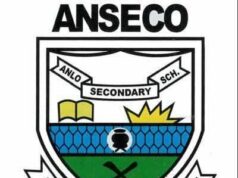Ghana’s Ambassador to China, Mr Edward Boateng, has assured Ghanaian students in epidemic-stricken Wuhan and their families that the Ghana government and the Mission in China are working around the clock to provide all the needs of the students.
He said that was why the embassy intervened immediately it was informed about the delay the students were encountering with the purchase of additional nose masks and gave an assurance that the students were not in any danger at all.
He said all arrangements had been put in place and that the nose masks were expected to be delivered yesterday.
Speaking with the Daily Graphic via phone from his base in China yesterday, Mr Boateng said while the mission empathised with the students over the unfortunate situation, the delay in delivering the nose masks occurred because the students initially expressed interest in facilitating the purchase, and the Mission allowed them, but they later informed the mission of the challenges, “and we quickly intervened”.
“Unfortunately, there has been some delay because when the mission was ordering the initial masks for the Ghanaian community, it informed NUGS China, with the view that they will let the mission buy for them, but they said their fellow Ghanaian students in Ukraine were ready to donate some to them and so they would rather let them buy the masks from Ukraine.
“Later, they informed the mission that they had challenges and so the mission has ordered 10,000 masks for distribution to all Ghanaian students across China this week. The masks will be received, hopefully, on Tuesday,” he said.
Mr Boateng’s assurance came on the heels of Ghanaian students in Wuhan in the Hubei Province in China calling on the government to evacuate them because they have run out of essential supplies, including nose masks, food and water, as they remain confined to their rooms to avoid being infected with the dreaded strain of COVID-19, which has claimed more than 1,600 lives so far.
But the ambassador said Ghana’s mission in China could confidently state that it had been working hard to ensure the safety of all Ghanaians in China during these challenging times, noting that although he sympathised with the students and their families, it was not a gloom-and-doom situation, as was being portrayed.
Some government interventions
Throwing more light on the government’s interventions, Mr Boateng said the Ministry of Foreign Affairs and Regional Integration, immediately after the lock down of Wuhan and the Hubei Province from January 23, 2020, granted approval for the embassy to expend 100,000 Yuan, the equivalent of $14,326, to enable the embassy to purchase nose masks, sanitisers and some groceries for Ghanaian students in the Hubei Province and others across China.
“The embassy released 55,000 Yuan to NUGS China out of that amount and students in Wuhan were given 20,000 Yuan each, while others in other cities in Hubei received 10,000 Yuan each,” he said.
He said another 20,000 Yuan was given for the purchase of nose masks and sanitisers for distribution to all other students in China, while he personally donated 10,000 Yuan to the students in Wuhan.
He said another 30,000 Yuan was used to buy 10,000 masks which were distributed to the Ghanaian community in China.
Food and needed logistics
On food and other logistics, Mr Boateng said the mission was in constant touch with the universities and working with them to ensure that students constantly had access to food and other needed logistics.
He said whenever the students encountered any problems and informed the mission about them or the problems were reported, the mission swiftly intervened to solve them and went back to verify from the students if their needs had been addressed.
He said in the wake of experts’ advice against the immediate evacuation of the students from the Hubei Province, the Ministry of Foreign Affairs released $250,000 to cater for Ghanaians in China and further directed that each student in the Hubei Province be given $500 equivalent in Yuan.
“The funds were received on Monday, February 17. The embassy has collated the list of eligible students and hopefully payment will commence on Tuesday. The money will be paid directly into their respective bank accounts,” he said.
The envoy mentioned the categories of students to receive the funds to include all full-time students currently in locked down Wuhan and the Hubei Province, students who were visiting Wuhan or Hubei and got caught in the lock down and all non-students who were verified as Ghanaian in Wuhan and Hubei.
He said the rest of the money would cater for students and Ghanaians throughout China with peculiar needs.
Parents demand evacuation
Meanwhile, parents of the students have renewed their demand for their children to be evacuated as soon as possible, giving the government a 72-hour ultimatum to act.
Addressing a press conference in Accra yesterday, a spokesperson for the parents, Ms Irene Callixta Songotu, insisted that their children were suffering in their confined environments (university hostels) due to the situation in Wuhan because they had little access to food and other logistics.
She said the parents were ready to bear the financial cost of evacuation and co-operate with the government on any arrangement to hold the students in isolated areas in Ghana until it had been proved beyond all reasonable doubt that they posed no risk to the public.
“We want to draw the government’s attention to the Chinese publication that the African blood genetic resistance to the virus is three times stronger than other continents and, therefore, bringing them home will not pose any danger,” she said.
While appreciating the governments efforts at supporting their children financially, she said money was the least of the students’ worries now, saying that they were traumatised and living in fear.
Ms Songotu said information reaching the parents indicated that their children were currently depending on the little stock of food they had and if that run out, it would be disastrous for them because most shops had closed down, while it was difficult to get access to basic goods and services.
Embassy’s response to press conference
In response to the press conference by the parents, Mr Boateng expressed shock at some of the claims they made, such as the starving of the students.
“We want to plead with the parents to provide us with the names of their children they said were starving and lacked other basic logistics, so that we will facilitate solutions. But to the best of my knowledge, all students on our list are safe and doing well,” he said.
He acknowledged the fact that the students would not be as comfortable as they were prior to the outbreak of the disease, but the situation was not all gloom and doom, as portrayed by the parents and some few students.
Mr Boateng appealed to the parents to bear with the government while it continued to deliberate with international stakeholders on the well-being of the students and said the government had not completely ruled out evacuation but was monitoring the situation.
He said the government did consider evacuation initially until international stakeholders, such as the World Health Organisation, said that option was not advisable currently.
“The virus is so contagious that even in China an order has been given for people to stop using physical cash to avoid further spread,” he said.





























